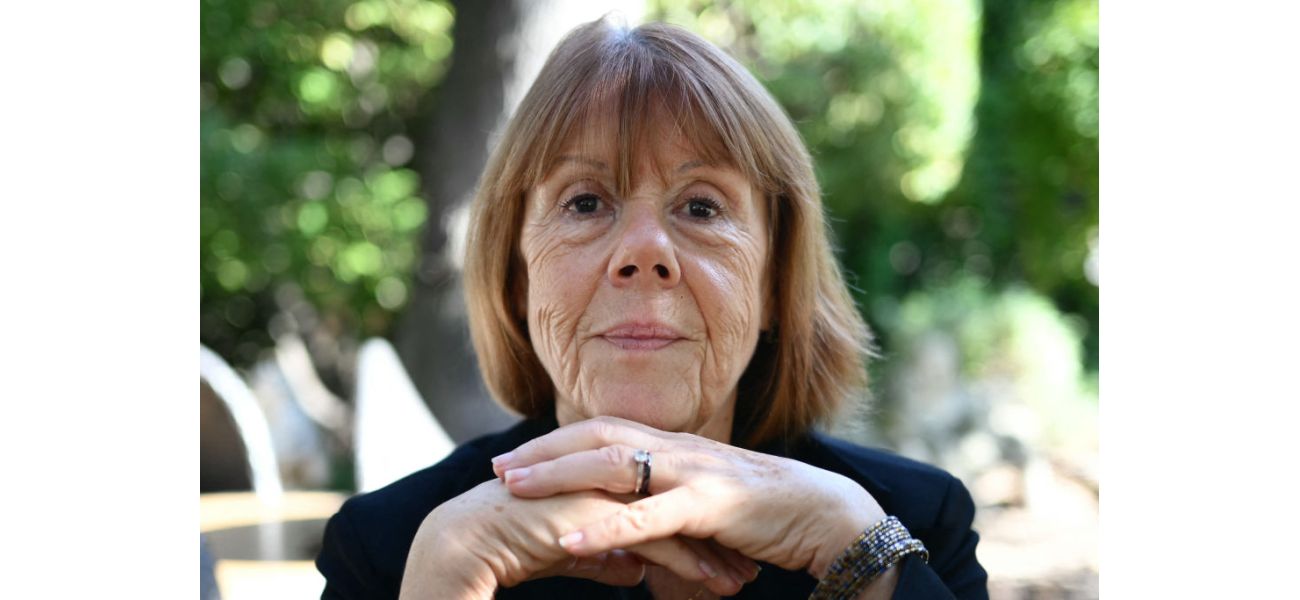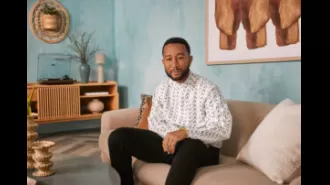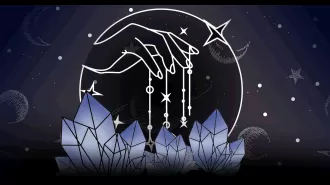Violence against women is a serious issue, but stories about it often fail to have an impact.
Metro explores the reasons behind the underestimation of violence against women.
November 25th 2024.

Gisèle Pélicot's harrowing experience has had a profound impact, but unfortunately, stories of violence against women often struggle to gain attention. In the UK, violence against women and girls perpetrated by men has reached the level of a national emergency. Shockingly, last year alone, there were over one million recorded crimes against women and girls in England and Wales. It's a terrifying reality that one in four women will experience domestic abuse in their lifetime.
Despite these alarming statistics, many of these stories fail to truly resonate with the public. They may briefly appear on our phones, TVs, and newspapers, but they are often skimmed over or quickly forgotten. The sad truth is, most accounts of domestic abuse, rape, and harassment fail to engage the public unless they are truly shocking and impossible to ignore.
One such story that captured the attention of the public was the horrific ordeal of Gisèle Pélicot, a 72-year-old French woman who became the central figure in a mass rape trial. Her ex-husband admitted to drugging and allowing her to be raped by an alleged 50 other men over the course of 10 years. It was an extreme and disturbing case that could not be ignored.
Similarly, the rape and murder of Sarah Everard by Met Officer Wayne Couzens in 2021 sparked widespread outrage and a national outcry against violence against women. However, despite the initial momentum and interest surrounding her story, it seems to have faded away.
In fact, when compared to other cases of sexual violence, such as the high-profile rape allegations against well-known public figure Mohammad Al Fayed, the public's engagement with Everard's story was significantly higher. It begs the question - why did Pélicot's story and Everard's abduction and murder garner more attention than the staggering 6.54 million women in the UK who have experienced rape?
This realization prompted Metro to launch a year-long campaign in 2024 called "This Is Not Right" to address the ongoing epidemic of violence against women. Through this campaign, we aim to shed light on the sheer scale of this issue and educate, engage, and empower our readers with the help of our partners at Women's Aid. We also invite our readers to share their own stories with us through email.
According to psychotherapist and author Eloise Skinner, extreme circumstances tend to capture our attention more easily than larger stories about systemic issues. This is partly because they are easier to understand and consume, and they often do not feel as if we are being burdened with the responsibility of participating in wider systemic change or engaging with challenging societal issues.
However, when it comes to violence against women, there is something deeper at play than just morbid curiosity. The true crimeification of violence against women in media has played a significant role in desensitizing us to these issues. With the rise of popular true crime podcasts and documentaries, there is an insatiable appetite for the most disturbing and sensationalized stories, often involving female victims.
Former crime journalist Linda Aitchison, who reported on the notorious Fred West murders, believes there is a fine line between telling important stories and exploiting traumatic events for entertainment. Unfortunately, many true crime media outlets prioritize sensationalism over new and relevant information, which can be damaging and exploitative for the victims and their families.
This constant bombardment of crime stories, particularly those involving women, can also lead to a desensitization and a sense of numbness towards these issues. As Linda explains, "The cheaper, more sensationalist true crime – whether an article or program – leaves you with an uncomfortable feeling that this dreadful crime, and pain upon the family and victim, is being exploited for profit by people who copy and paste these reports together."
But the true crimeification of violence against women is not the only issue at play. On social media, misogyny is rampant, and algorithms often amplify and give a platform to these harmful views. In the aftermath of the US election, a post from a far-right political activist about abortion went viral, reaching over 444,000 followers and receiving 52,000 likes. Even on platforms like TikTok, a UK study found a significant increase in misogynistic content after just five days of use.
It's clear that violence against women is not shocking because it is simply an extension of the world we live in. It is deeply ingrained in our society and perpetuated by systemic issues, including misogyny and the glorification of true crime. As a society, it is crucial that we recognize and address these issues and work towards creating a safer and more equal world for all women.
Gisèle Pélicot's terrifying experience has caused a significant shift in the conversation surrounding violence against women, but unfortunately, these stories still struggle to gain widespread attention. In the UK, the issue of violence against women and girls by men has reached emergency levels. Shockingly, there were over one million recorded cases of crimes against women and girls in England and Wales last year alone. It's a staggering statistic that highlights the reality of this epidemic. It's a reality that one in four women will experience domestic abuse in their lifetime.
What's even more alarming is that many of these stories are simply not resonating with the public. They may flash across our screens and newspapers, but they are often skimmed over or quickly forgotten. The unfortunate truth is that the majority of stories involving domestic abuse, rape, and harassment fail to engage the public unless they are particularly shocking or extreme. This was the case with Gisèle Pélicot, a 72-year-old French woman who was at the center of a mass rape trial. Her harrowing experience of being drugged and repeatedly raped by her ex-husband, who also admitted to offering her up to be raped by 50 other men over a period of 10 years, was so extreme that it could not be ignored.
Similarly, the recent tragic case of Sarah Everard, who was raped and murdered by a Metropolitan Police officer, initially sparked widespread outrage and public interest. However, as time passed, so did the momentum of interest. It's concerning that the public seems to only truly engage with cases of violence against women when they are shocking and extreme, rather than acknowledging the larger systemic issue at hand.
In an effort to address this ongoing epidemic, the Metro launched a year-long campaign in 2024 called "This Is Not Right." The goal of this campaign is to educate, engage, and empower readers on the issue of violence against women. Through partnerships with organizations such as Women's Aid, the Metro aims to shed light on the scale of this crisis and bring attention to the stories of victims.
But why is it that extreme and shocking cases seem to capture our attention more than stories about systemic issues? According to psychotherapist and author Eloise Skinner, it's partly because they are easier to consume and understand, and they don't carry the burden of engaging with challenging societal issues. However, there is something deeper at play when it comes to violence against women.
The true crimeification of violence against women has also played a role in desensitizing the public to these stories. With the rise of popular true crime podcasts and documentaries, there has been a growing appetite for stories of shocking and violent crimes, often involving female victims. This trend has only continued to grow, with true crime podcasts accounting for a quarter of the top-rated English-language podcasts in 2022.
But there is a fine line between telling important stories and exploiting traumatic events for entertainment. As former crime journalist Linda Aitchison points out, the true crime industry often sensationalizes and rehashes old stories to make them more "bingeable." This can have a numbing effect on the public, making us more desensitized to stories of crime and violence, regardless of the victim's gender.
On social media, misogyny is also rampant. It's not uncommon to come across posts or comments that perpetuate harmful and sexist beliefs. In fact, a study found that after just five days on TikTok, there was a significant increase in misogynistic content appearing on the "For You" page. This normalization of misogyny can also be seen on other platforms, with algorithms often amplifying these harmful messages.
In order to truly address the issue of violence against women, we must acknowledge that it is not just shocking and extreme cases that demand our attention. It is a pervasive issue that affects millions of women and girls every day. By educating ourselves and engaging in meaningful conversations, we can work towards creating a safer and more equitable society for all.
Despite these alarming statistics, many of these stories fail to truly resonate with the public. They may briefly appear on our phones, TVs, and newspapers, but they are often skimmed over or quickly forgotten. The sad truth is, most accounts of domestic abuse, rape, and harassment fail to engage the public unless they are truly shocking and impossible to ignore.
One such story that captured the attention of the public was the horrific ordeal of Gisèle Pélicot, a 72-year-old French woman who became the central figure in a mass rape trial. Her ex-husband admitted to drugging and allowing her to be raped by an alleged 50 other men over the course of 10 years. It was an extreme and disturbing case that could not be ignored.
Similarly, the rape and murder of Sarah Everard by Met Officer Wayne Couzens in 2021 sparked widespread outrage and a national outcry against violence against women. However, despite the initial momentum and interest surrounding her story, it seems to have faded away.
In fact, when compared to other cases of sexual violence, such as the high-profile rape allegations against well-known public figure Mohammad Al Fayed, the public's engagement with Everard's story was significantly higher. It begs the question - why did Pélicot's story and Everard's abduction and murder garner more attention than the staggering 6.54 million women in the UK who have experienced rape?
This realization prompted Metro to launch a year-long campaign in 2024 called "This Is Not Right" to address the ongoing epidemic of violence against women. Through this campaign, we aim to shed light on the sheer scale of this issue and educate, engage, and empower our readers with the help of our partners at Women's Aid. We also invite our readers to share their own stories with us through email.
According to psychotherapist and author Eloise Skinner, extreme circumstances tend to capture our attention more easily than larger stories about systemic issues. This is partly because they are easier to understand and consume, and they often do not feel as if we are being burdened with the responsibility of participating in wider systemic change or engaging with challenging societal issues.
However, when it comes to violence against women, there is something deeper at play than just morbid curiosity. The true crimeification of violence against women in media has played a significant role in desensitizing us to these issues. With the rise of popular true crime podcasts and documentaries, there is an insatiable appetite for the most disturbing and sensationalized stories, often involving female victims.
Former crime journalist Linda Aitchison, who reported on the notorious Fred West murders, believes there is a fine line between telling important stories and exploiting traumatic events for entertainment. Unfortunately, many true crime media outlets prioritize sensationalism over new and relevant information, which can be damaging and exploitative for the victims and their families.
This constant bombardment of crime stories, particularly those involving women, can also lead to a desensitization and a sense of numbness towards these issues. As Linda explains, "The cheaper, more sensationalist true crime – whether an article or program – leaves you with an uncomfortable feeling that this dreadful crime, and pain upon the family and victim, is being exploited for profit by people who copy and paste these reports together."
But the true crimeification of violence against women is not the only issue at play. On social media, misogyny is rampant, and algorithms often amplify and give a platform to these harmful views. In the aftermath of the US election, a post from a far-right political activist about abortion went viral, reaching over 444,000 followers and receiving 52,000 likes. Even on platforms like TikTok, a UK study found a significant increase in misogynistic content after just five days of use.
It's clear that violence against women is not shocking because it is simply an extension of the world we live in. It is deeply ingrained in our society and perpetuated by systemic issues, including misogyny and the glorification of true crime. As a society, it is crucial that we recognize and address these issues and work towards creating a safer and more equal world for all women.
Gisèle Pélicot's terrifying experience has caused a significant shift in the conversation surrounding violence against women, but unfortunately, these stories still struggle to gain widespread attention. In the UK, the issue of violence against women and girls by men has reached emergency levels. Shockingly, there were over one million recorded cases of crimes against women and girls in England and Wales last year alone. It's a staggering statistic that highlights the reality of this epidemic. It's a reality that one in four women will experience domestic abuse in their lifetime.
What's even more alarming is that many of these stories are simply not resonating with the public. They may flash across our screens and newspapers, but they are often skimmed over or quickly forgotten. The unfortunate truth is that the majority of stories involving domestic abuse, rape, and harassment fail to engage the public unless they are particularly shocking or extreme. This was the case with Gisèle Pélicot, a 72-year-old French woman who was at the center of a mass rape trial. Her harrowing experience of being drugged and repeatedly raped by her ex-husband, who also admitted to offering her up to be raped by 50 other men over a period of 10 years, was so extreme that it could not be ignored.
Similarly, the recent tragic case of Sarah Everard, who was raped and murdered by a Metropolitan Police officer, initially sparked widespread outrage and public interest. However, as time passed, so did the momentum of interest. It's concerning that the public seems to only truly engage with cases of violence against women when they are shocking and extreme, rather than acknowledging the larger systemic issue at hand.
In an effort to address this ongoing epidemic, the Metro launched a year-long campaign in 2024 called "This Is Not Right." The goal of this campaign is to educate, engage, and empower readers on the issue of violence against women. Through partnerships with organizations such as Women's Aid, the Metro aims to shed light on the scale of this crisis and bring attention to the stories of victims.
But why is it that extreme and shocking cases seem to capture our attention more than stories about systemic issues? According to psychotherapist and author Eloise Skinner, it's partly because they are easier to consume and understand, and they don't carry the burden of engaging with challenging societal issues. However, there is something deeper at play when it comes to violence against women.
The true crimeification of violence against women has also played a role in desensitizing the public to these stories. With the rise of popular true crime podcasts and documentaries, there has been a growing appetite for stories of shocking and violent crimes, often involving female victims. This trend has only continued to grow, with true crime podcasts accounting for a quarter of the top-rated English-language podcasts in 2022.
But there is a fine line between telling important stories and exploiting traumatic events for entertainment. As former crime journalist Linda Aitchison points out, the true crime industry often sensationalizes and rehashes old stories to make them more "bingeable." This can have a numbing effect on the public, making us more desensitized to stories of crime and violence, regardless of the victim's gender.
On social media, misogyny is also rampant. It's not uncommon to come across posts or comments that perpetuate harmful and sexist beliefs. In fact, a study found that after just five days on TikTok, there was a significant increase in misogynistic content appearing on the "For You" page. This normalization of misogyny can also be seen on other platforms, with algorithms often amplifying these harmful messages.
In order to truly address the issue of violence against women, we must acknowledge that it is not just shocking and extreme cases that demand our attention. It is a pervasive issue that affects millions of women and girls every day. By educating ourselves and engaging in meaningful conversations, we can work towards creating a safer and more equitable society for all.
[This article has been trending online recently and has been generated with AI. Your feed is customized.]
[Generative AI is experimental.]
0
0
Submit Comment





